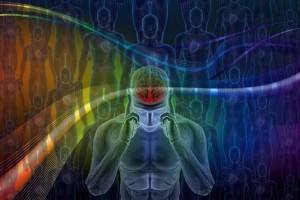Dopamine makes you feel happy, but we probably still have to rewrite the textbooks
Researchers have discovered a new piece in the puzzle of the brain's 'feel good' substance, dopamine. According to one of the researchers behind the new study, the discovery may facilitate the development of drugs for i.e. cocaine addiction and ADHD and is most likely to change the general notion of how dopamine is removed from the brain.
"The mechanism we have been researching is the so-called dopamine transporter (DAT). DAT controls dopamine signaling in the brain by removing the released dopamine and thus turning off the signal. DAT can be described as a molecular vacuum cleaner. Dopamine is key to our ability to control the communication between nerves in the part of the brain known as the reward centre. For example, it is dopamine that makes us feel happy when we do something we enjoy."
"This new insight into how DAT works may enable us to design better drugs for e.g. ADHD and schizophrenia, which are conditions related to the level of dopamine in the brain."
Previously, DAT's removal of dopamine was believed to depend on sodium. Sodium is a mineral, which makes up around 40 percent of regular table salt. In the body, however, sodium is responsible for the conductivity of the nerves, and proteins use the energy in sodium to transport e.g. dopamine. But as demonstrated by Claus Juul Løland and his research team as the first in the world, there is more to it than that.
For the entire system controlling dopamine to work properly, the motor itself has to work. DAT is the part of the motor that makes sure dopamine is removed from the synapse. This stops the dopamine signal, paving the way for a new one. It also means that the released dopamine can be reused, and that we do not use up our entire stock of dopamine.
"ADHD drugs are a type of amphetamine that targets and blocks DAT. This means that not all dopamine returns to the cell for reuse, and we may have difficulty feeling rewarded. It is even worse with a substance such as cocaine which completely blocks DAT, preventing all dopamine from returning to the cell. This means that the nerve cells will continue to want more cocaine until there is no more dopamine left and you start to feel depressed," Claus Juul Løland explains.
The new study gives researchers and pharmaceutical companies detailed knowledge of how DAT works and how we can regulate the activity of the protein instead of blocking it.
It is difficult, though, if not impossible, to study the molecular functions of DAT in their natural environment in the brain. Instead, the researchers have inserted DAT into 'artificial' cells, which enables them to control all processes both inside and outside the cell.




Related Posts